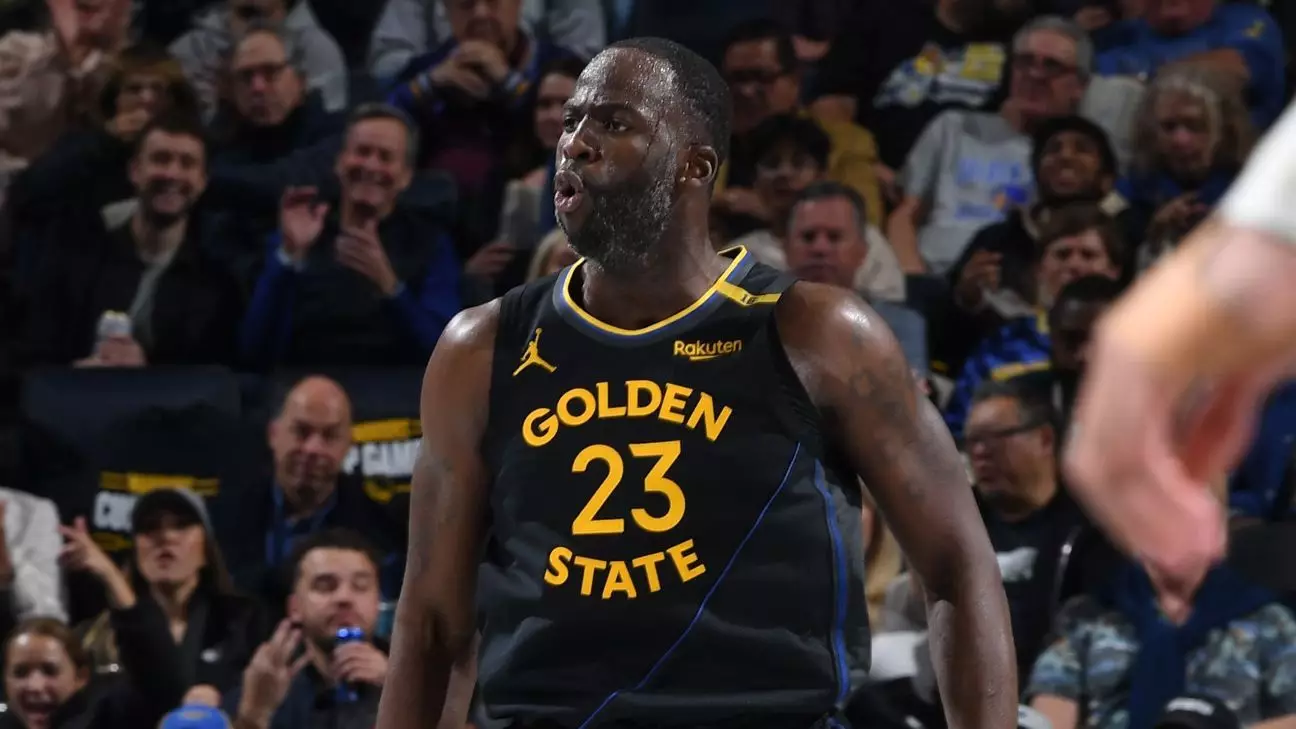In the world of professional sports, rivalry and tension often bubble just beneath the surface of camaraderie and teamwork. The Golden State Warriors, a team renowned for their success and strong locker room chemistry, faced an unexpected fracture that stemmed from an explosive incident involving Draymond Green and Jordan Poole. Recently, as Poole returned to the Chase Center as a member of the Washington Wizards, Green’s public apology reignited discussions about their tumultuous relationship and the repercussions of past arguments within a tight-knit team structure.
In October 2022, an altercation raised eyebrows across the league when a video of Green striking his then-teammate Poole during a practice went viral. The punch came during a day of intense training, where emotions ran high. The immediate backlash was significant. The Warriors organization found itself at a crossroads, confronting not just the ramifications of Green’s actions but also the impact on team chemistry following their championship victory just months prior.
The Warriors opted to issue a fine to Green and temporarily remove him from the team environment to allow tensions to cool. However, no further disciplinary action from the league was imposed, which left fans and analysts pondering the idea of accountability in professional sports. Green’s behavior, while incidentally brushed aside by the league, led to broader discussions about how a singular moment of aggression could ripple through an entire season and alter the dynamics within a championship-caliber lineup.
Fast forward to Poole’s recent visit to the Chase Center, where he was met with warmth and nostalgia. In an event that could have reopened old wounds, it instead provided Green with an opportunity to readdress the past and express remorse publicly. His comments on “The Draymond Green Show” indicated a desire to move past the altercation, citing that the incident was a product of stress and competitive spirit gone awry. Green acknowledged his wrongdoing and emphasized that harboring resentment would not benefit either party in the long run.
Despite his admission of guilt, Green presents a nuanced perspective on conflict resolution. “You can’t call a man a B-word and push him and not expect a reaction,” he stated, highlighting the complex nature of interpersonal conflicts in competitive environments. This aspect of his commentary reveals valuable insights into both personal responsibility and the dynamics of aggression. Instead of simply acknowledging fault, he reflects on the broader implications of intense competition and the emotional environments that athletes operate in.
Significantly, Green’s path to redemption includes a commitment to personal improvement. Following incidents of aggression during the previous season, including a suspension for a chokehold and another for a physical altercation, Green took proactive steps to address his behavior. He engaged in counseling and maintained regular check-ins with mental health professionals, recognizing the need for growth not merely in skills but within the complexities of emotional intelligence.
This introspective journey connects to a broader conversation about mental health in sports—a topic that has gained much-needed attention in recent years. Green’s journey underscores the necessity for athletes to cultivate emotional resilience and take accountability for their actions. His assertion that “We all fail. But I’m not a failure” resonates strongly with athletes and fans alike, encapsulating the idea that mistakes are parts of growth rather than definitive descriptors of one’s character or capabilities.
As he faces yet another injury setback, Draymond Green exemplifies the challenges professional athletes encounter both on and off the court. His journey fosters a narrative of recovery and self-awareness that extends beyond basketball. Inherent within his apologies and reflections is an ultimate truth: the quest for improvement necessitates taking accountability and recognizing the impact of one’s actions in a larger context.
For fans of the Warriors, Green’s evolving relationship with Poole and his determined effort to improve demonstrate that growth can emerge even from the darkest moments. The road isn’t always smooth, and struggles will persist, but maintaining resilience and fostering respect can ultimately lead to a more harmonious future both within teams and in individual lives.


Leave a Reply